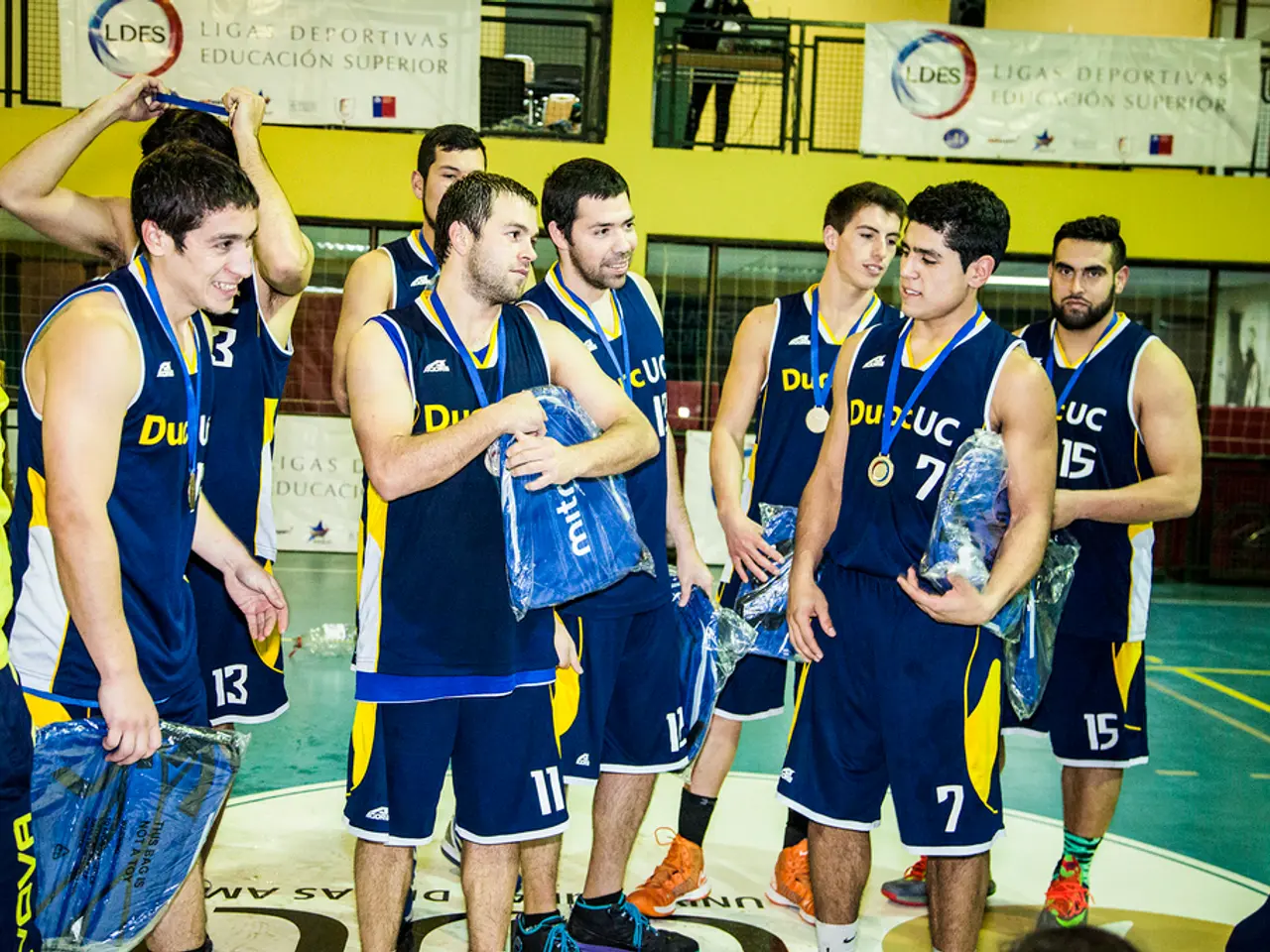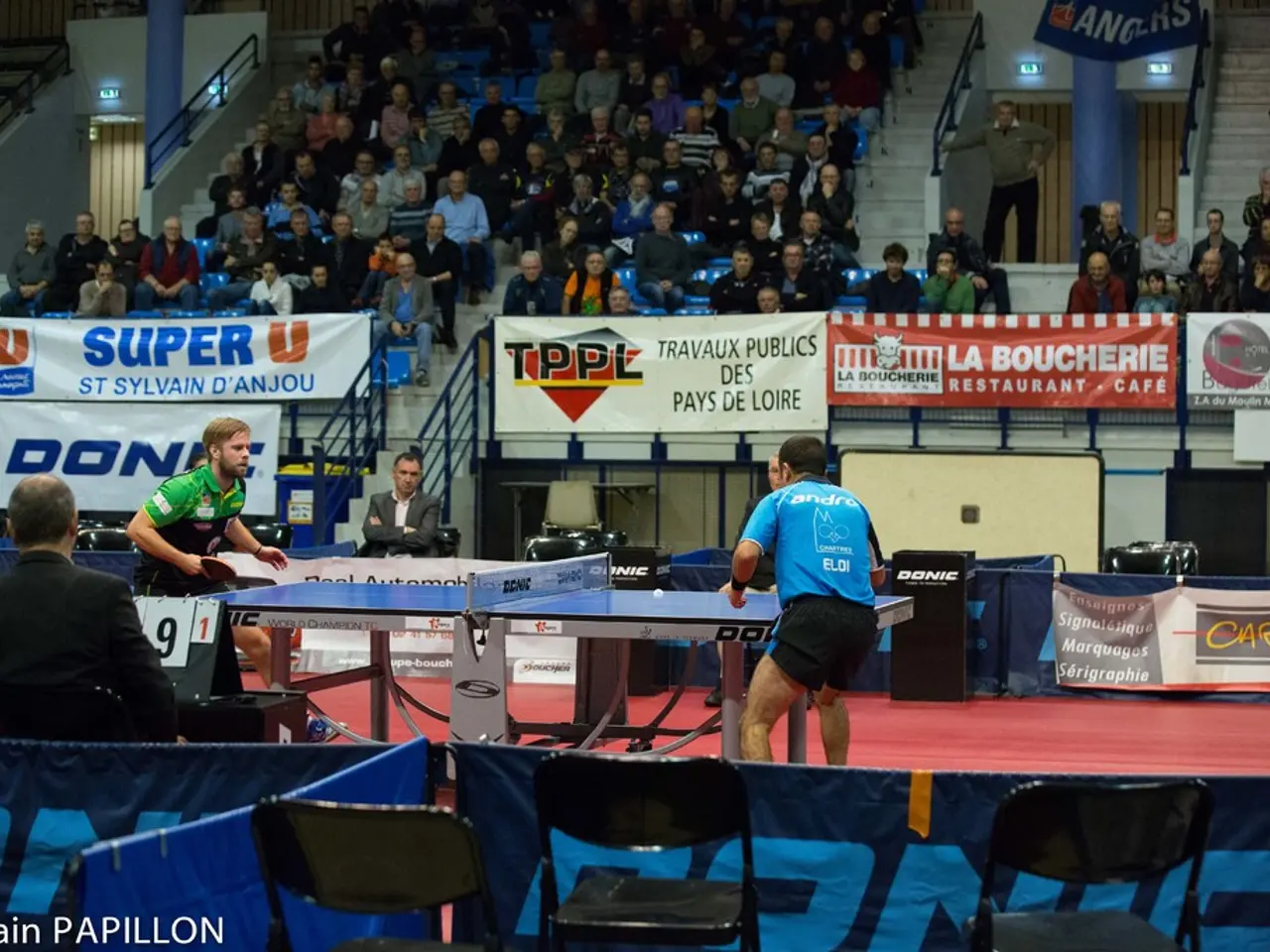FIFA Responds to Heat Conditions in Upcoming 2026 Matches - FIFA Addresses Summer Games in 2026 Contest Amidst Criticisms
As the world gears up for the 2023 FIFA World Cup, organisers have announced plans to address the challenges posed by extreme heat experienced in previous tournaments. The decision comes as a response to lessons learned from the Club World Cup and the pressure to adapt to the rising heat events, particularly in North American cities.
FIFA President, Gianni Infantino, has acknowledged the heat as a factor that needs to be addressed, and the global players' union, FIFPro, has urged the organisation to make significant changes. One of the proposed alterations is moving away from midday and afternoon kick-offs in high-risk venues to avoid peak heat periods.
The 2026 World Cup, scheduled for June and July, will be held across North American cities known for their intense summer heat. To combat this, FIFPro has also called for longer half-time breaks to help players recover from heat stress, providing more time for hydration and cooling.
During the 2025 Club World Cup held in the United States, players reported dangerous heat conditions with pitch temperatures exceeding 100°F (38°C). Some players experienced dizziness or exhaustion on the field, and emergencies required medical intervention for both players and spectators.
Media reports highlighted requests for extra hydration breaks during matches and demands to reconsider start times to cooler hours of the day. Coaches such as Niko Kovac of Borussia Dortmund have criticised midday kick-off times, questioning the ability of players to perform at their best under such extreme heat conditions.
To mitigate these risks, FIFA plans to utilise more covered stadiums for early matches in the 2023 World Cup. Stadiums in Vancouver, Dallas, and Los Angeles already have roofs, and other stadiums offer at least some shaded areas on the pitch. The final stadium in New York was criticised for exposing players to midday sun and extreme heat during the Club World Cup.
FIFA is also planning four kick-off times per match day for the 2023 World Cup, ensuring that teams will not only have evening matches. The tournament will feature 48 national teams and 104 matches, with matches being played in Mexico, Canada, and the USA from June 11 to July 19.
These adjustments reflect the growing recognition of climate impacts on outdoor sports safety and performance. The increasing frequency and intensity of heat waves globally make it critical for sports organisers like FIFA to adapt accordingly. The 2023 World Cup promises to be a testament to this commitment, ensuring a safer and more comfortable environment for players and fans alike.
The Commission has also taken initiatives to improve the quality of information and communication services among FIFA, sports organisations, and athletes, focusing on the dissemination of vital heat warning information during football events, such as the 2023 World Cup. In addition, with the growing concern over extreme heat events affecting football matches, especially during the 2023 World Cup in North American cities, FIFA has been urged to introduce measures like moving kick-offs to cooler hours, extending half-time breaks, and utilizing more covered stadiums to provide a safer and more comfortable environment for players and spectators.








